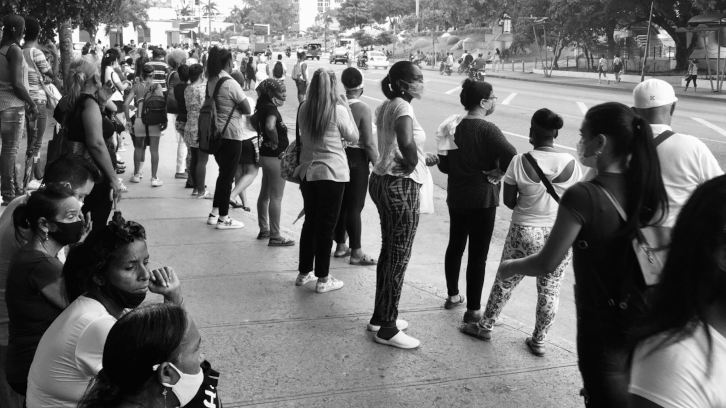How does transport scarcity reshape women's lives in Santiago de Cuba?

In Santiago de Cuba, there is a severe transport scarcity that has turned daily mobility into an ongoing struggle. This situation especially affects women, who juggle the roles of wage earners and primary caregivers. This article explores how women experience this context of scarcity and unpredictability, and how the journey to their destinations impacts them.
The new paper we present, co-authored by Monika Maciejewska from Universitat Autònoma de Barcelona and Wojciech Kębłowski from Vrije Universiteit Brussel, has just been published in the Journal of Transport Geography. In this study, we dive into the daily mobility challenges faced by women in Santiago de Cuba—a city where material scarcity has turned daily mobility into an ongoing struggle.
Santiago de Cuba faces severe transport scarcity, driven by a lack of fuel, vehicles, and spare parts. These challenges deeply affect the availability and reliability of public transport, which is the primary mode of travel. Women, who often juggle the dual roles of wage earners and primary caregivers, are disproportionately impacted. Their daily mobility is marked by unpredictability, resource constraints, and heightened stress.
Our research considered these two questions: “How do women experience mobility within the context of transport scarcity?” and “How does transport scarcity affect the everyday lives of women, their travel behavior, experiences, coping strategies, and preferences?”.
The results show that transport scarcity renders daily mobility unpredictable, complex, and resource-consuming. Women must dedicate substantial time and effort to navigate a system plagued by delays and unreliability. Therefore, they experience heightened stress and time constraints, which often reduce sleep and exacerbate the challenges of balancing caregiving and paid work.
The coping strategies incorporated by these women involve constant engagement at transport stops, including active searches for travel opportunities and relying on mutual support among passengers and transport workers. Uncomfortable and overcrowded conditions particularly challenge vulnerable groups, including seniors, pregnant women, menstruating women, and those traveling with children.
All in all, these difficulties deepen social inequalities, limiting women’s ability to fulfill their daily responsibilities, maintain social roles, and plan activities effectively.
Department of Geography
Universitat Autònoma de Barcelona
References
Maciejewska, M., & K¿b¿owski, W. (2025). How does transport scarcity affect the everyday lives of women? Herstories of daily mobility in Santiago de Cuba. Journal of Transport Geography, 123, 104103. https://doi.org/10.1016/j.jtrangeo.2024.104103

